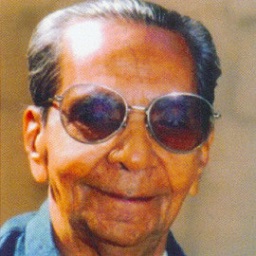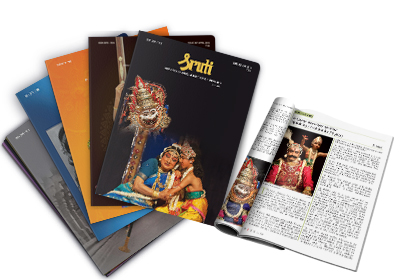
Balasaheb Poonchwale
The late Balasaheb Poonchwale, born in Gwalior in 1918, was the son of Rajabhaiya Poonchwale, an eminent musician of the Gwalior gharana.
Balasaheb Poonchwale and others of his generation were caught in the maelstrom that engulfed Indian classical music in the late 19th century and the early 20th century during India’s struggle for independence. The patrons of classical music in pre-independent India were the princely kingdoms and rich landowners. With the slow collapse of the Maharajas and their kingdoms, the community of musicians who made a living under the patronage and care of these sponsors became isolated and their social and economic standing began to dwindle. It was also during this painful transition when a nation’s economic and social freedom and the right to a motherland were being severely tested that the classical arts and music lost their pre-eminent position, resulting in a steep decline.
The musical system steeped in classical tradition remained resolute through all adversities and hung on, feeding off the tenacity achieved by existence through centuries of onslaught from foreign cultural invasions. The band of musicians and cultural artistes who withstood the onslaught of change beat back the notion that Indian classical music existed only for a niche group of listeners who had some knowledge of musical composition and its technicality. Thus began a renaissance, a movement that subtly transformed classical music while retaining the core of its classical tradition.
In the mid 20th century, classical musicians of various gharanas found ways and means to revive Indian classical music and rekindle interest in this art.
It is in the light of these developments that the contribution of Balasaheb Poonchwale and other maestros of various gharanas must be noted. Deeply influenced by the style and singing of other vocalists, Balasaheb incorporated them in his own, fashioning a unique identity and distinctive style.
His experiments with various styles and his rendition of the bandish in Tilang, coupled with his large repertoire of tappas and khayals, made him an outstanding exponent of the Gwalior gharana. As Principal of Madhav Music College in Gwalior in the 1960s and 70s he made valuable contributions as mentor and teacher. Several archives of his musical recordings are housed here and abroad.
A recipient of the Sangeet Natak Akademi award in 1993 and the Shikar Samman for Musical Excellence conferred by the Madhya Pradesh government, Pandit Balasaheb Poonchwale breathed his last on January 4, 2005 in Gwalior.
A Sangeet Samaroh is held in Gwalior in January each year to honour his memory and to relive his legacy.


